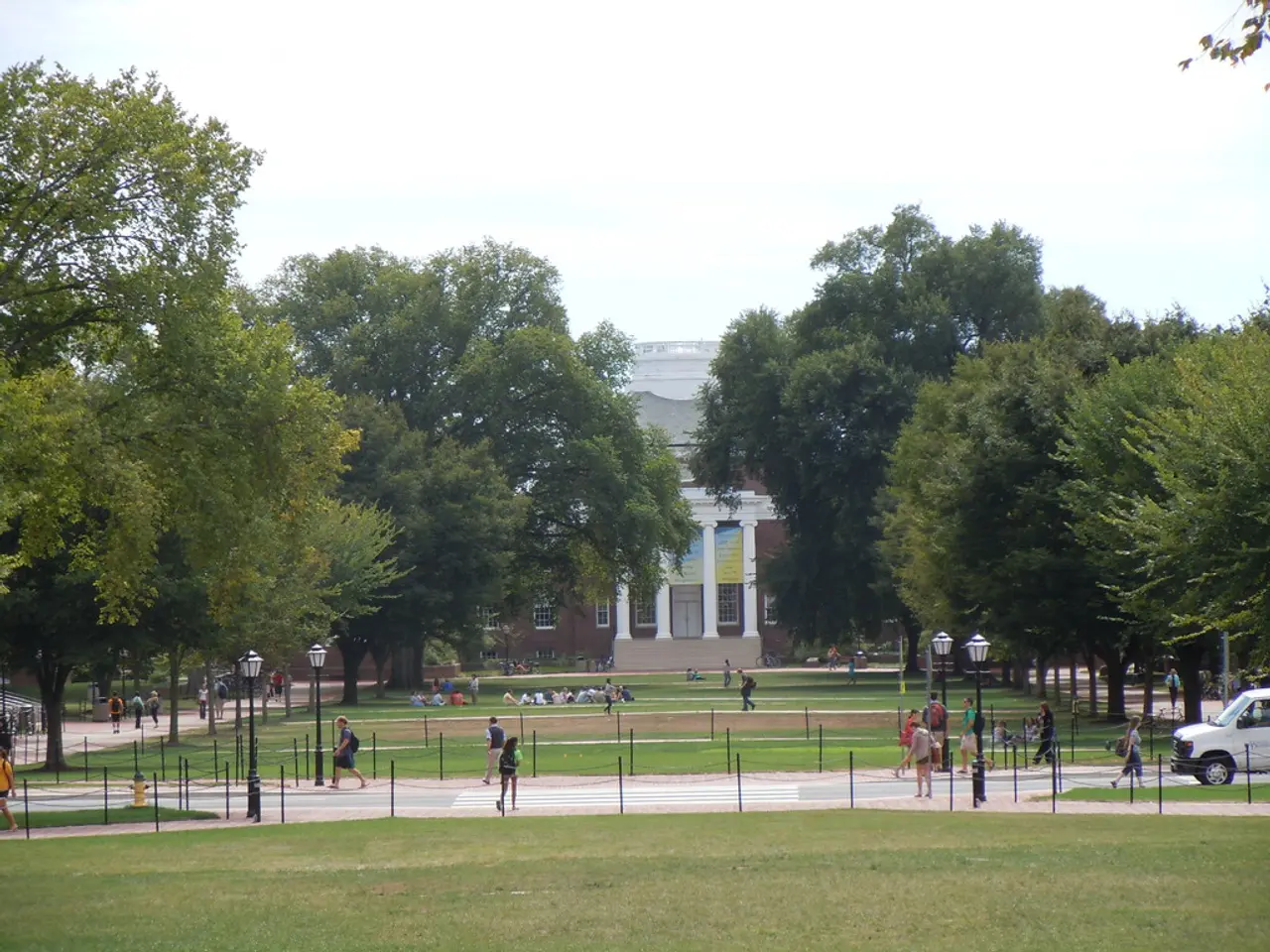Exploring Academic Programs at Princeton University
In the world of academic research, Princeton University is making strides to provide undergraduate students with unique opportunities to delve into the heart of scientific inquiry. Xander Jenkin, Natural Sciences Correspondent, explores the university's year-long lab-based research sequences, offering a valuable experience for those considering a career in research.
One such sequence is the AST250-251 Space Physics Lab Sequence, where students learn lab skills, operate a vacuum chamber, and design, build, and test components. The goal of this sequence was to create a revised Absolute Beam Monitor (ABM) to detect, monitor, and classify different types of laser beams in a vacuum. The revised ABM, as compared to the previous design, proved to be significantly more efficient, capturing more of the beam while taking less power.
Beyond the realm of physics, Princeton offers a plethora of research courses that cater to various disciplines. The Dale '53 Fellowship, for instance, funds independent research projects lasting a full academic year. These projects allow students to engage deeply with experimental scientific questions in labs.
Princeton's research labs cover cutting-edge topics, such as cell biology and bioengineering, and genomics and transcriptomics. For example, Clifford Brangwynne’s lab has developed tools to map RNA movement and even create artificial nucleoli to better understand cellular protein production mechanisms. Another notable case involves genomic research on the freshwater organism Hydra, using nanopore sequencing, Omni-C sequencing, and Iso-Seq sequencing to explore dynamic genome features.
These projects typically involve extensive lab experiments, data collection, and advanced methodologies such as high-resolution imaging, genomics sequencing technologies, and computational data analysis.
In summary, Princeton’s year-long lab-based research sequences enable undergraduate students to conduct substantial independent research in diverse biological and engineering fields, working on sophisticated experimental projects ranging from molecular cell biology to genomics.
Other departments at Princeton, such as Chemistry, Engineering/Entrepreneurship, Psychology, and Molecular Biology, also offer lab-based research sequences. However, this article does not focus on any specific lab research sequence or course in particular. Instead, it serves as a testament to the university's commitment to providing students with valuable research experiences.
For those considering a career in research, taking a research course or sequence at Princeton can be a valuable opportunity. These experiences not only provide hands-on, lab-based research but also offer a chance to work closely with faculty members and peers, fostering a deeper understanding of the research process.
Whether you're a budding physicist or a biologist-in-the-making, Princeton's year-long lab-based research sequences offer a unique learning experience that extends beyond the confines of traditional lectures and textbooks.
- For individuals pursuing a career in research, Princeton University's year-long lab-based research sequences, such as the AST250-251 Space Physics Lab Sequence, provide an online education in the heart of scientific inquiry, offering opportunities to learn and develop skills in lab settings, design, build, and test components, and work closely with faculty members and peers.
- In addition to research opportunities in physics, Princeton's extensive lab-based research sequences cover various disciplines, including cell biology and bioengineering, genomics and transcriptomics, and offer a unique education-and-self-development experience, beyond traditional lectures and textbooks, for those interested in careers in these fields.




